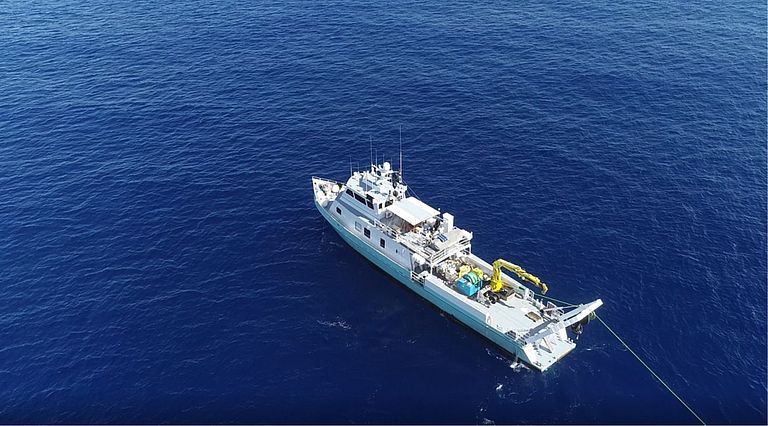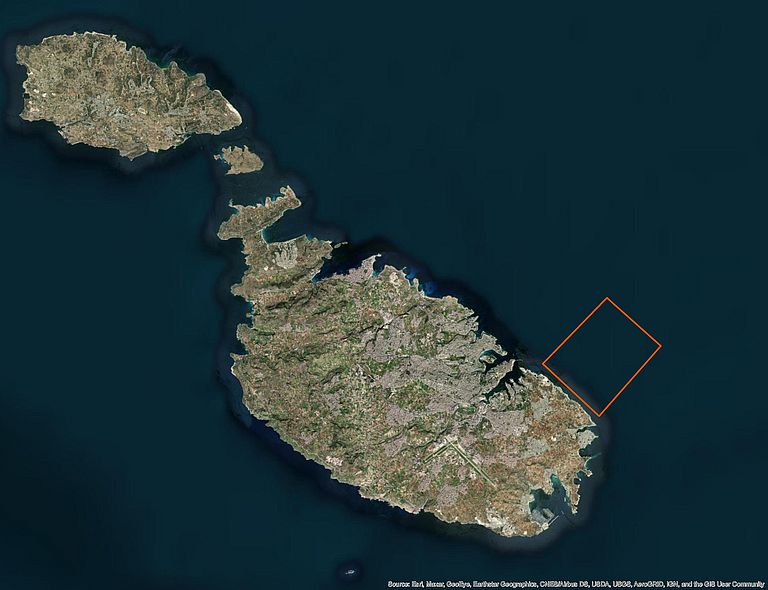Groundwater resources off the coast of Malta
Researchers discover fresh water in the Mediterranean Sea
Only about 3% of the water on earth is fresh water. Of this, only a small part can be used for drinking water or irrigation. Therefore, especially in arid or semi-arid regions, the search for usable freshwater resources is very intensive. In recent years, with the help of new, innovative methods, previously unknown deposits have also been discovered below the seafloor. Using such methods, an international team of scientists let by GEOMAR Helmholtz Centre for Ocean Research Kiel and the University of Malta have obtained strong evidence of a groundwater reservoir off the Mediterranean island.
“Our discovery is based on an oceanographic expedition we conducted in 2018”, explains Prof. Dr. Amir Haroon, from GEOMAR, lead author of the study. “We used geophysical methods, called reflection seismics, combined with novel electromagnetic techniques to detect these deposits”, Haroon continues. “Our data suggest that the groundwater occurs as an isolated body in limestone formations three kilometres from the coast”, the scientist explains.
Using numerical modelling, the researchers found evidence that a second near-shore groundwater body may exist close to the Maltese coast. The water body was probably formed there during the last ice age 20,000 years ago, when the sea level was lower than today.
From Professor Aaron Micallef, co-author from GEOMAR & University of Malta, perspective, this discovery has a number of important implications. “Offshore groundwater may represent a new, unconventional source of drinking water that should be considered in future national water management strategies for the Maltese islands”, he states. Furthermore, he says, the presence of groundwater off a dry, calcareous coast like Malta's is a good sign for similar areas in the Mediterranean that suffer from water scarcity. However, he cautions, the use of the groundwater now found would likely be unsustainable, as it would not be actively recharged and pumping rates would likely be low.
Note:
This project has received funding from the European Research Council (ERC) under the European Union's Horizon 2020 Research and Innovation Programme (grant agreement no 677898; MARCAN).
Original paper:
Haroon, A., A. Micallef, M. Jegen, K. Schwalenberg, J. Karstens, C. Berndt, X. Garcia, M. Kühn, E. Rizzo, N.C. Fusi, C.V. Ahaneku, L. Petronio, Z. Faghih, B. A. Weymer, M. De Biase, F. Chidichimo, 2021: Electrical Resistivity Anomalies Offshore a Carbonate Coastline: Evidence for Freshened Groundwater? Geophysical Research Letters, doi: https://doi.org/10.1029/2020GL09190
Contact:
Dr. Andreas Villwock (GEOMAR, Communication and Media), Phone: +49 431 600-2802, presse(at)geomar.de




